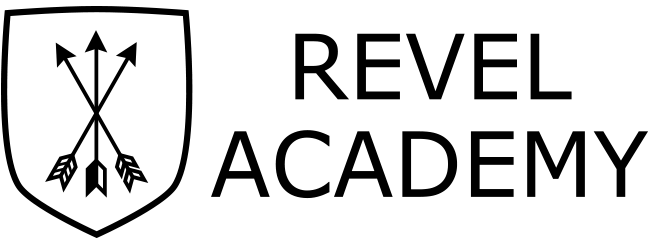They Told Me It Was Okay To Fail
They told me it was okay to fail.
At 12, I arrived at Revel Academy as a tangled mass of anxiety, perfectionism, and the hazy notion that school was a competition in which children vied to be the most correct, and I refused the idea that failure was anything other than absolute, character-damaging, and utterly loathsome. I arrived hardened and unspeaking, and determined that this school would be no better than the five others I'd already bounced around. Really, I'd already made up my mind. But Revel, in its own quiet, radical way, unravelled so much of what I had taught myself was necessary for survival that soon I wasn't sure what to do with myself.
At Revel, failure wasn't a death sentence. It wasn't staying inside during recess, writing essays about responsibility or respect; it wasn't even a flaw. In the Exploration Studio, where I spent my first years digging into the knot I had wound inside myself, I failed a lot. I recall a group project from the first Water Quest I ever did, which failed brilliantly, hugely, and with the kind of melodrama only a moody 12-year-old can summon. And then something remarkable happened: no one came to rescue me. Instead, I was asked, "What did you learn?"
That question, looking for the benefit of every experience, quickly became the refrain of my days at Revel. The Guides stood back with what I think can only be described as strategic invisibility - it was maddening at times, yes, but it also allowed me to grow in ways I hadn't thought possible. The Guides led with restraint, allowing us to trip over our egos and ambitions, and to fall. Then, and only then, were we handed the tools to build ourselves back up. This absence of hand-holding wasn't neglect; it was preparation. It was a taste of the bewildering freedom of the real world, where nobody checks if you've done the reading.
Revel, too, allowed for an essential kind of teenage cringe, which is often unstoppable. I dyed my hair red and read poetry aloud, which I hope now has been mercifully scrubbed from the depths of my mind. I presented a program on Japanese history entirely in Japanese, and I stammered the whole way. No one laughed. Rather, they did, but it was never at me. It was safe to try on ideas and personalities like costumes, to discard and maintain and reinvent. I can't count the metamorphoses I went through to find myself, but I can recount how I was never mocked, never paraded around - it was safe to be ridiculous without being ridiculed.
By early high school, I was managing my own time, actually breaking down tasks, manoeuvring the experience of a larger workload, and coming out of it successfully, not just juggling an infinite number of tasks. There were no bells dictating the flow of my days, no homework for the sake of ritual. I learned how to build a routine, how to adjust it when it wasn't working, and critically, how to take a deep breath and change my goals if they no longer made sense for me. Time was elastic, but responsibility was fixed. In that environment, I started to see myself not as a student, this mechanistic creature that relies upon a never-ending stream of work to create good grades, but as a learner. Someone who could be held accountable, someone growing and changing, someone finally in motion. As if I had been broken from my stagnancy.
Near the end of high school, my journey had been firmly tethered to my interests for some time - fantastically, Erin always found a point of interest to rope me into learning even the most dreaded subjects - I became obsessed with early human history, and with the proper encouragement to dive deep, I explored Gobekli Tepe with unrestrained vigour. What started as a simple project on the first temple of humankind quickly spiralled into paleoethnobotanical papers, cultural exchange between megalithic sites, and swimming through studies from the German Archaeological Institute. I forgot, more than once, that I wasn't doing "real" research - because Revel taught me to treat learning as life.
And now, now, now. How time flies. I've been accepted to Carleton University's Bachelor of Global and International Studies, with a concentration in teaching English in global contexts. With a scholarship. It feels surreal to acknowledge that, but so too, I think, does it feel inevitable. Revel did not give me a map. It handed me a compass and told me there was something out in the world worth finding. It told me I would get lost more than a couple of times, and that getting lost was, in its own way, part of the adventure.
They told me it was okay to fail. And I finally believed it.
- Written by Revel Academy’s first Launchpad Graduate

